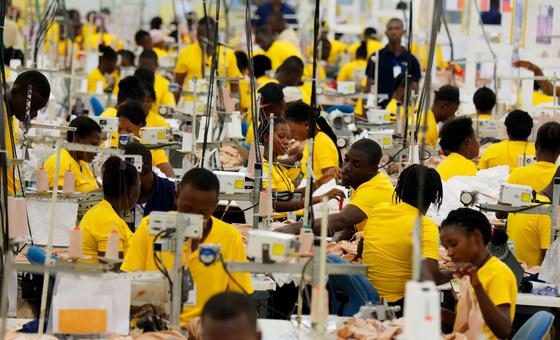Young workers in low-income countries find it much harder to secure regular work compared with wealthier nations, according to the UN International Labour Organization (ILO)
By Daniel Johnson
The number of young people unemployed globally is at a 15-year low but Asian Pacific and Arab States – and women in particular – “are not seeing the benefits” of this post-COVID economic recovery, the UN labour agency said on Monday.
“Millions of young people around the world are blocked in their aspiration for decent work,” said the International Labour Organization (ILO), as it published new data on trends in the worldwide jobs market.
The UN agency said in a new ILO report that although global youth unemployment fell to 13 per cent in 2023 – below the pre-pandemic rate of 13.8 per cent in 2019 – and is expected to continue falling to 12.8 per cent in 2024 and 2025, this recovery has been “uneven”.
“In East Asia (up 4.3 per cent), the Arab States (up one per cent) and South-East Asia and the Pacific (up one per cent), youth unemployment rates have continued to rise,” said Sara Elder, ILO Head of Employment Analyses and Public Policies.
Lack of opportunity
Equally worrying is the finding that more than one in five young people last year were not in employment, education or training – a situation that the ILO calls “NEETs”.
“If you’re a young woman, the challenge to stay in school or get a job is double – two in every three young NEETs are female,” Ms. Elder noted.
Other key developments in the youth labour market is that it is now “harder than ever” to find a decent and secure job, according to ILO, which estimated that nearly 65 million young people did not have a job last year.
Birthright bias
“Most young workers still lack social protection (and) remain in temporary jobs that make it hard for them to get ahead as independent adults,” Ms. Elder continued, adding that only one in four young workers in low-income countries is likely to have a regular and secure job, compared with three in four in wealthier countries.
The pressures of finding work weigh heavily on young people, the UN labour agency found, with two in three saying that they fear losing their job.
“Decent work is a ticket to a better future for young people. And a passport for social justice, inclusion and peace. The time to cerate the opportunities for a brighter future is now,” Ms. Elder insisted.


